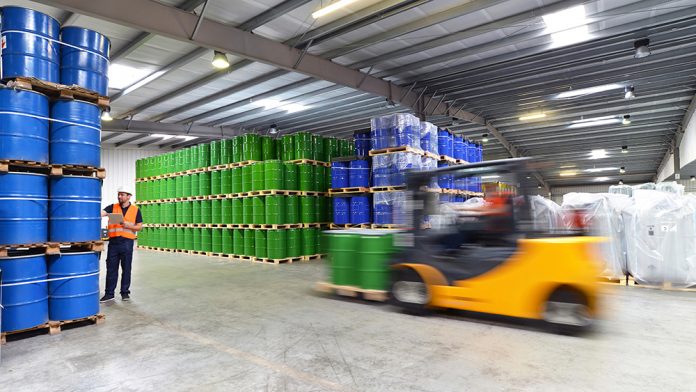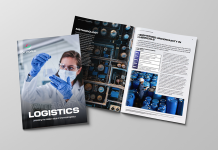A logistics provider you can trust in times of change
We all need no reminder of the turbulence the past 18 months has brought to not just the chemical industry, but industries and countries across the globe. While a large number of industries ceased operations entirely at the start of the COVID-19 pandemic, the chemical industry saw an influx in demand for chemical products, particularly those used in sanitisers and plastics. From the beginning, it became clear that complex, extended global supply-chains were a bottleneck to production, something which was constantly evaluated and scrutinised by the media in the early days of the pandemic. Now, more than 18 months on, and the demand for chemical materials related to the pandemic remains high.
As this trend continues, and the future seems consistently uncertain, now more than ever, first-rate logistics and supply chain management is imperative. Therefore, when looking to transport chemicals or hazardous materials, it is vital for customers to work with a logistics partner that they trust.
Rhenus has developed an extensive quality management system for transport and warehousing of agrochemical and chemical products. This goes beyond legal requirements, containing health, safety, security and environment as well as sustainability.
Customs – how the movement of chemicals has changed
Brexit has been – but not gone. Almost all UK based (and most EU based) companies will now be all too aware of the impact of customs on goods moving in and out of the UK. It’s safe to say that all goods moving between the UK and the EU have been impacted by the introduction of customs, but the chemical industry, in particular, has really felt the pinch.
Along with various food and animal products, the movement of chemicals has always been one tightly governed by legislation. Now, with the introduction of customs, UK based chemical manufactures have to provide even more information and paperwork to ensure they are compliant. Fortunately, Rhenus can offer advice as experts in the field of customs and the movement of chemical goods. This is crucial, as the responsibility ultimately falls to the chemical firm, so working with a logistics firm that can share a complete understanding of the various processes and changing rules around customs, in addition to knowledge of individual country legislation is key.
Implementing a complete supply-chain approach with local experts
Rhenus’ position as a market leader within chemical logistics has been possible thanks to a best-practice model, utilising in-house chemical specialist teams, which provide advice and solutions on hazardous transport challenges. These teams help to ensure UK manufacturers keep up-to-date with the latest trends and legislation for the transportation of chemical products, as well as ensuring exporters are aware of the differing laws and standards for hazardous material from country to country.
There is a significant benefit to chemical companies in implementing a complete supply chain approach – going beyond transportation and utilising value-added services such as customs clearance, warehousing and in-factory logistics. In addition to the overall cost benefits of keeping all aspects of the supply chain under one roof, crucially it leads to an overall simpler supply chain. With this, specific customs requirements, just in time warehousing and last-minute changes to shipments are all more straightforward and less costly in terms of time and cost.
ChemUK 2021
With its own specialist chemical division, proven capability of pan-European transportation and state-of-the-art facilities in Bradford, Cannock, Maldon and Manchester, all of which are SQAS (Security & Quality Assessment Systems) certified, Rhenus UK has demonstrated its ability to provide top-line service, irrespective of the market. Rhenus’ commitment to the sector will be demonstrated at this year’s ChemUK at the NEC, Birmingham, where it will be showcasing its global capabilities within the chemical and hazardous goods market.
www.rhenus.group










